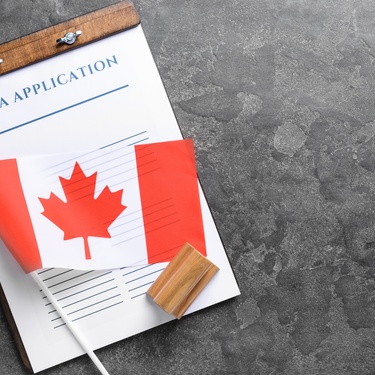
Moving to Canada can be an exciting opportunity, but the immigration process isn’t always straightforward. While Canada welcomes newcomers, certain factors can create significant obstacles for prospective immigrants. Understanding these four things that might make it harder to move to Canada ahead of time can help you better prepare for your application and avoid costly delays or rejections.
Criminal History Can Create Major Barriers
A criminal record is one of the most significant obstacles to overcome when applying for Canadian immigration. Canada takes security very seriously and conducts thorough background checks on all applicants. Even minor offenses that seem insignificant can impact your eligibility. Canada looks for drunk driving offenses like impaired driving, driving under the influence, and operating a vehicle while intoxicated, regardless of when these occurred.
The severity of your criminal history determines the level of difficulty you’ll face. Some offenses can make you completely inadmissible, while others might require additional documentation or waiting periods. If you have a criminal record, you may need to apply for criminal rehabilitation or receive a temporary resident permit before being eligible for permanent residence. This process can add months or even years to your immigration timeline.
Medical Examinations May Pose Challenges
Canada requires medical examinations for most immigration applicants to ensure they don’t pose a health risk to Canadians or place excessive demand on the healthcare system. Certain medical conditions can result in inadmissibility, particularly those that require extensive ongoing treatment or pose public health concerns.
The medical examination process itself can also create delays. You must use a panel physician approved by Immigration, Refugees and Citizenship Canada, and these appointments aren’t always readily available. Additionally, if you have a complex medical history, you may need to provide extensive documentation from your current healthcare providers, which can be time-consuming to obtain and translate if necessary.
Financial Requirements Are Substantial
Canada requires proof that you have sufficient funds to support yourself and your family upon arrival. These settlement funds must be readily available, and you can’t borrow them from others.
Beyond settlement funds, you’ll also need money for application fees, medical examinations, language testing, and credential assessments. These costs can add up quickly, and you can’t work in Canada to earn this money while they process your application.
Language Proficiency Standards Are High
Canada has two official languages, and demonstrating proficiency in English or French is crucial for most immigration programs. The language requirements are quite demanding, and many applicants struggle to achieve the necessary scores on approved tests like IELTS or CELPIP for English, or TEF or TCF for French.
Language test scores are valid for only two years, so time your application correctly. If your scores expire during the application process, you’ll need to retake the tests. Poor language scores can significantly reduce your points in the Express Entry system or make you ineligible for certain provincial nominee programs.
Preparing for Success Despite the Challenges
While these obstacles can make immigration more difficult, they’re not necessarily insurmountable. These things that might make it harder to move to Canada require careful planning and preparation, but many applicants successfully navigate these challenges with proper guidance and realistic expectations about the timeline and requirements involved.
Consider consulting with a qualified immigration lawyer or consultant who can assess your specific situation and recommend the best course of action. Starting your preparation early gives you time to address potential issues, improve your language skills, or resolve any criminal inadmissibility issues before submitting your application.
Bio: Casey is a passionate copyeditor highly motivated to provide compelling SEO content in the digital marketing space. Her expertise includes a vast range of industries from highly technical, consumer, and lifestyle-based, with an emphasis on attention to detail and readability.



















